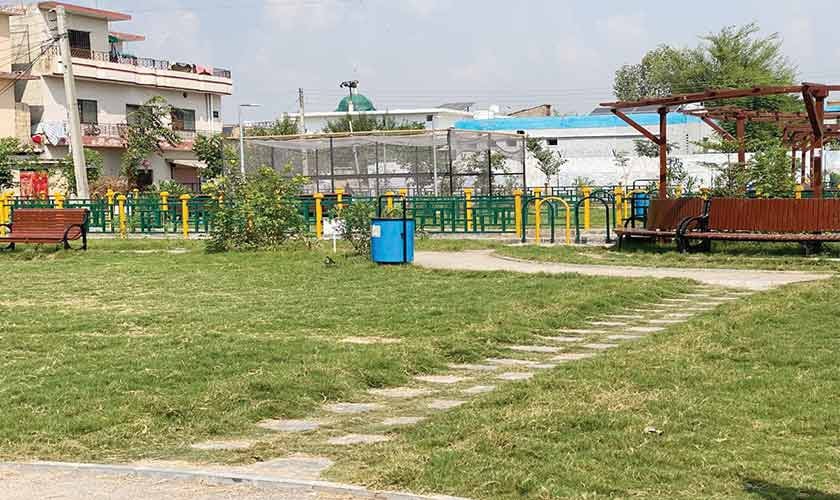Thousands of residents of Farash Town and James Town in the twin cities are pleased because they now have access to clean drinking water. Not just that, they have also learned useful skills like how to reuse water and recharge the water table by employing rain harvesting techniques.
This achievement came through a megaproject focused on water security. The project was a collaborative programme started by the World Wildlife Fund (WWF)-Pakistan and the Australia-Pakistan Water Security Initiative, an Australian Aid-funded project aimed at strengthening cooperation between Australia and Pakistan on urban water resources management.
The megaproject consisted of a series of smaller projects, all scheduled to be operational by the end of December. It is expected that these will be run with active community participation. The primary goal was to tailor, adopt, and demonstrate the Water Sensitive Cities approach in Pakistan.
Islamabad and Rawalpindi are among the cities expected to face water scarcity over the coming years. The pilot project focused on two neighbourhoods of the twin cities.
### Target Areas: James Town and Farash Town
The first target area was James Town, Rawalpindi, home to over 450 Christian households and suffering from acute water shortages. The second was Farash Town, another neighbourhood facing water scarcity in Islamabad, with a population of over 20,000.
Yasmin Bibi, a resident of Farash Town, shared her experience:
“Our area had a severe water shortage. The water table had also declined. With the help of these projects, we were able to recharge the aquifer and get water from filtration plants installed at various places in the town.”
The WWF installed seven water filtration plants at five points in Farash Town and two more in the larger schools of the area. As many as 24,500 people now have access to clean drinking water. Significantly, these filtration plants are maintained by the community itself.
“This is a blessing for us,” said Imran Ali, another resident. “Earlier, many families had to go to the Chak Shahzad government filtration plant to get water. We had to hire a rickshaw to fetch water from there. Now, we have clean drinking water right at our doorstep.”
He added, “Before this project, people were so frustrated with water scarcity that those who could afford to were selling their properties and moving to other parts of the city. But now, with this project, our lives and priorities have changed. It’s such a relief not to have to go out of our way to get something as basic as water.”
### Project Details and Interventions
Since its inception in April 2021, the WWF has made significant strides in both neighbourhoods:
**In James Town:**
– Installation of 275 rainwater harvesting systems (RWHS)
– Six water recharge interventions
– Two green spaces
– Two large and one small filtration plants
– 15 solid waste skips
– Two rain gardens
– Sewerage system for 450 houses
**In Farash Town:**
– 375 rainwater harvesting system interventions
– Four ablution water reuse systems
– 31 recharge interventions
– Three green spaces
– Three communal RWHS
– Five large and two small filtration plants
– Four solid waste skips
– Two rain gardens
### Importance and Impact
“Such projects are very important,” says Farah Nadeem, the project lead. “These models are a serious demonstration creating awareness about water security.”
Additionally, the initiative has integrated water security issues into the curriculum of local schools to foster understanding among younger generations.
Through this project, WWF-Pakistan has helped improve access to safe water and sanitation services for two disadvantaged communities, ensured community resilience to climate change and other water-related shocks, and built the capacity of key stakeholders regarding water use and conservation.
### Water Stress in Pakistan
Pakistan is one of the most water-stressed countries in the world, with an average per capita water availability of only 964 cubic meters per annum. Scientific studies indicate that Pakistan is undergoing depletion of groundwater resources, which adds to climate change-induced vulnerabilities. Millions of people are already affected by the lack of water, food, health services, and energy security.
This megaproject represents a vital step towards addressing these challenges and securing water resources for future generations in the twin cities of Islamabad and Rawalpindi.
https://www.thenews.com.pk/tns/detail/1346830-covering-the-basics
